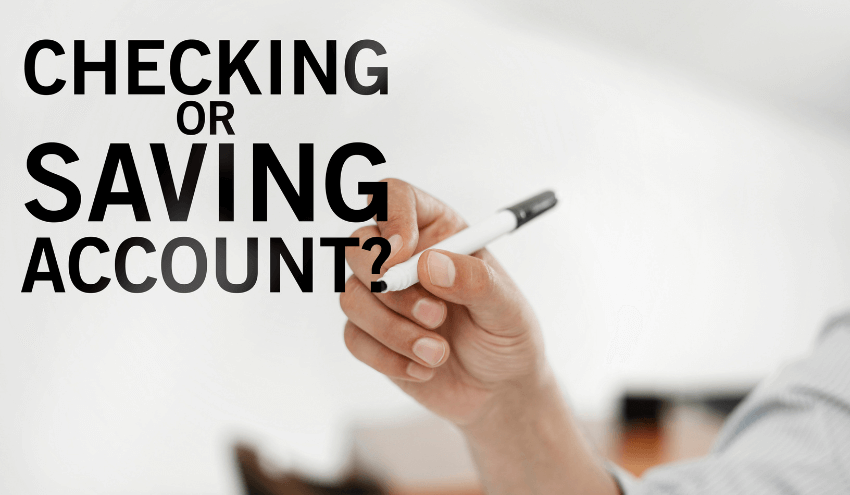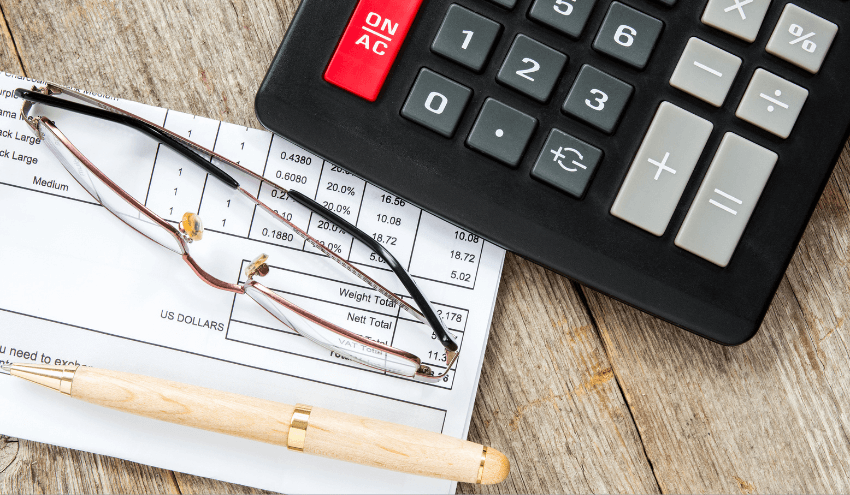Checking accounts and savings accounts are both beneficial tools for managing your money. Checking accounts, also known as spending accounts, are primarily for day-to-day withdrawals, while savings accounts are often used to set money aside toward a specific financial goal or general financial security. Keep reading to determine if you should open a checking account vs savings account, or both.
The Difference Between Checking and Savings Accounts
Checking accounts are designed to facilitate daily financial transactions, providing easy access to your funds for everyday use. Unlike checking accounts, savings accounts are intended for setting aside money towards future goals and typically earn interest on the balance maintained. While most checking accounts do not offer interest, those that do often provide very low rates.
Key Features of Each Account Type
Checking Accounts
• Primarily used for daily spending
•
Offer multiple methods for payments and withdrawals
• Usually low or no interest on balances
• Includes features like direct deposit and access to mobile and online banking
Savings Accounts
• Aimed at saving money for future needs
• Offers interest on stored funds
• Access is somewhat restricted to discourage impulse spending
• Supports features like automatic transfers to help build savings effortlessly
If opened at a Member FDIC bank, both types of accounts are federally insured up to $250,000 per depositor, per ownership category, per institution. This ensures the security of your deposits. Both accounts also provide the convenience of digital banking, allowing you to manage your finances efficiently online.
What is a Checking Account?
A checking account, sometimes called a spending account, is meant to be used for everyday transactions since the money is easy to withdraw. Both checking and savings accounts allow you to access your funds, but checking accounts are commonly connected to a debit card, may provide a checkbook, and can be added to virtual wallets such as Apple Pay or Samsung Pay. Checking accounts add a level of convenience when it comes to daily transactions because money can be withdrawn through various forms of payment.
Keep in mind that some financial institutions have age restrictions on who can open an account. Banks typically require the account holder to be 18 years of age unless accompanied by a guardian who signs on to be a co-owner of the account.
Benefits of a Checking Account Include:
- Money is secure in the account yet easily accessible for daily transactions
- Funds in the account are accessible through a debit card, checkbook, ATM, or a virtual phone wallet
- Online bills can often be automated & paid from the account monthly
- May accrue interest (typically lower interest rates than savings accounts) or cashback on purchases
What is a Savings Account?
Savings accounts are perfect for, well, saving! Savings accounts are a great place to put your money if you are saving up to reach a long-term goal. Many people open savings accounts to create an emergency or “rainy day” fund, save for a vacation, or build toward any other large transaction or purchase. Savings accounts pay interest on the balances kept in the account, so your money can grow over time. If you are looking for a savings account with a competitive interest rate, consider a high-yield savings account, as your money will grow faster over time compared to a standard savings account.
Some savings accounts place limits on how many withdrawals are permitted each month. This can be beneficial to discourage spending money on daily expenses that was intended to be saved toward a future goal. Some institutions also offer savings accounts specifically for children with parents as co-owners.
Benefits of a Savings Account Include:
- Secure way to store your money for a future need
- Interest accrues to grow your money over time
- Fewer withdrawal methods to encourage saving habits
- An account dedicated to reaching your financial goals
Benefits of Having a Checking and Savings Account
Is a checking account or a savings account better? The reality is that checking and savings accounts perform best together. When you open both checking and savings accounts at the same bank, you can quickly and easily transfer money between the two accounts. This allows you to reap the benefits of saving for your financial goals without sacrificing the ability to use your money for daily transactions.
If you create an emergency fund, you want to ensure you can access the money easily in case an unfortunate event occurs. Having a savings account that is linked to your checking account allows you to easily withdraw the money necessary to aid in your emergency.
Additionally, many companies allow employees to directly deposit all or part of their paycheck into specified accounts. If a part of your savings plan is to set aside a percentage of earnings each pay period, the ability to portion your direct deposit or automatically transfer money to your savings account will make this practice more efficient.
Benefits of Having a Checking and Savings Account Include:
- Seamless transfer between accounts opened at the same bank
- Creating a savings plan is simpler
- More convenient to develop an emergency fund
- Easier to avoid penalties for checking overdraft or insufficient funds
Which is Best For You?
When determining if you should open a checking account vs savings account, consider your banking needs. If you would like to save money for a later date or larger expense, a savings account will do the trick. If you need access to your money for day-to-day expenses, a checking account is the best option. Overall, opening both checking and savings accounts is what will give you the most flexibility in reaching your financial goals and meeting your daily transactional needs.
If you are looking to open up a new checking or savings account, consider opening your accounts with TAB Bank. Not only does TAB Bank offer secure, online banking, but it also offers other banking services that provide solutions to your personal or business financial needs. If you’re interested in growing your savings account at a faster rate, consider opening a high-yield savings account. Click below to explore the premiere online banking opportunities of TAB Bank.



